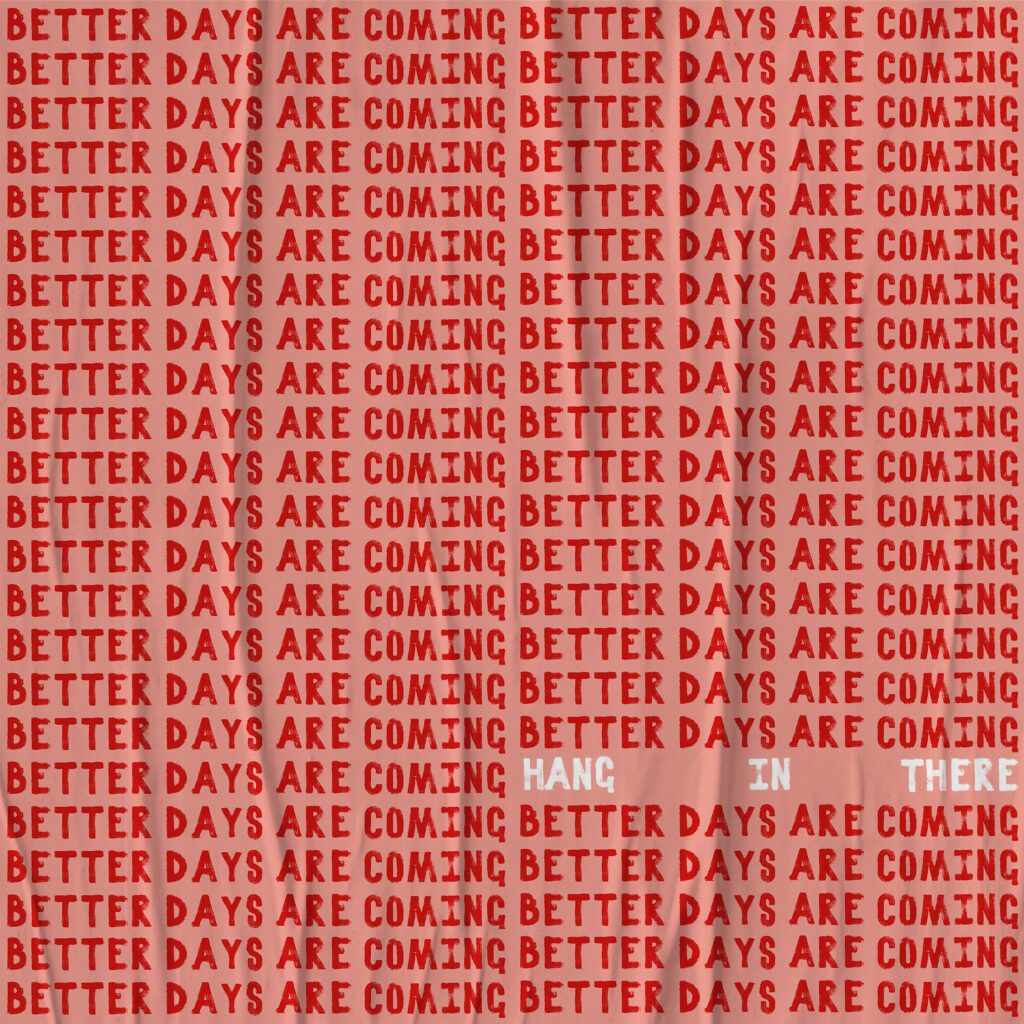Feeling overwhelmed by life – unable to keep up, let alone meet society’s expectations for spirited ambition and perpetual “on-ness” – can be maddening, deflating, isolating. And, if you find yourself paralyzed by anxiety or slowly sinking under the weight of depression, you may begin to feel downright hopeless. You may be tempted to tough it out alone. Or you may wonder how to know when you need counseling for depression and anxiety.
No matter what you’re asking yourself, you’re in good company. Now, more than ever, people are feeling the same emotional challenges…and asking the same right questions.
One good thing that has come from the Coronavirus Pandemic is more comfort with and less shame about mental health.
Indeed, rates of depression, anxiety, trauma, and other conditions have skyrocketed due to COVID’s impact. As a result, more people recognize that addressing mental health matters doesn’t require whispering or tip-toeing. You don’t even have to use the “asking for a friend” line (unless you actually are).
Mental health challenges are nothing to be ashamed of. Fortunately, depression and anxiety are no longer taboo topics (at least in most circles).
(Recent celebrity and athlete disclosures of depression, anxiety, and other mental health challenges have also helped reduce stigma. Thank you, Simone Biles, Michael Phelps, Serena Williams, and others.)
Less stigma about mental health means it’s easier to acknowledge struggles and seek counseling. Yay!

Counseling is a great idea for just about everyone. You don’t need to qualify by having depression or anxiety.
Counseling, believe it or not, is a powerful tool for personal growth, with or without an underlying condition or glaring “issue.”
It can give you access to a healthy, objective perspective from a trained professional.
Counseling can help you push forward out of “stuck” beliefs and behaviors so that you can become more of who you know you were created to be.
It can help you cultivate clarity and courage so you can recognize (or flat-out leave) toxic situations and relationships.
And it can nurture your natural curiosity and self-exploration, giving you the ability to live a more authentic, enlightened life.
So back to how to know if you need counseling for depression and anxiety…
People often assume that if someone “looks fine,” they “feel fine.”
That assumption, however, is all myth. (Remember the proverb about not judging a book by its cover?)
It’s impossible to have certainty about other people’s degree of depression or anxiety, especially just by looking at them.
An obvious exception is in cases of someone displaying severe signs – suicidal tendencies, stage fright, or a direct admission of depression.
To help you determine if you may need (or benefit from) counseling for depression and anxiety, ask yourself some questions. (I encourage you to write down your responses, as there is power in seeing your thoughts in writing. It’s the same premise as journaling.)
Here are 10 questions to reflect upon in order to know if you need counseling for depression and anxiety:

- How often do you think about coping with depression and anxiety?
- What are the ways/habits you use to cope?
- How many of your methods do you consider good for physical and mental well-being?
- Do you feel shame about depression or anxiety, or about how you are coping?
- How do depression and anxiety affect your relationships – personally, professionally, and with yourself?
- How has the quality of your life been affected overall?
- If your close friend, sibling, or child were suffering from depression and anxiety in a similar way as you, would you encourage counseling? Why or why not?
- What are the pros and cons of you pursuing counseling for depression and anxiety?
- Is there a time frame, after which you would seek counseling if your symptoms were not improved?
- In what ways have depression and anxiety caused problems in your life, both every day and in the big picture?
When depression and anxiety affect your daily life, counseling is a great resource.
This is especially true when their negative effects close in on your relationships or cause you to lose interest in what you used to enjoy.
Difficulty working, feeling irritable, having medical problems, or questioning your worth are other telling signs that depression and/or anxiety may warrant professional help
Counseling is helpful for depression and anxiety because it helps you learn how to identify and name feelings. It also teaches you effective ways of coping.
Talking about feelings can be difficult, especially if you’re from a family where feelings weren’t discussed. The sweep-it-under-the-rug-so-it-goes-away strategy only serves to intensify feelings and is never helpful.
Being able to put words to your feelings is so important.
Unnamed and unexpressed feelings tend to accumulate and fester. They fuel depression, anxiety, and harmful coping behaviors such as alcohol use, self-harm, smoking, compulsive spending, and promiscuity.
The counseling office is a safe space to talk through challenges, be it struggles with family or romantic partners, losses, fears, or blocks to moving forward in your life.
Counseling provides a forum for talking about feelings and thoughts you might not feel safe or comfortable discussing with anyone else.
An additional benefit is that you learn skills that last after counseling ends. The strategies you practice continue to improve well-being.
As you assess whether you need counseling for depression and anxiety, ask yourself how often you feel each of the emotions listed below.
(You may also ponder how much and how severely each particular feeling interferes – if at all – in your life.)
***If any of the feelings could lead you to cause yourself or someone else harm, getting help is essential.
Overwhelm/burnout
Overwhelm and burnout happen when you believe you have way too many things to do or deal with.
You feel unable to relax and possibly even unable to breathe.
You may notice you are unusually tired or even chronically wired. Perhaps you even feel “wired” while your body and mind are exhausted.
Fatigue/racing heart
Because mental and physical health are linked, you may have physical symptoms (e.g. fatigue, sleep disturbance, or headaches) from depression or anxiety.
Fatigue can make even pleasant activities difficult.
A racing heart due to anxiety can create panic (and an even faster heart rate), especially if you’re convinced you’re about to have a cardiac emergency.
Disproportionate anger/resentment
Feeling angry at times is normal. However, if anger sticks around or leads to harmful urges or acts, get help.
Suppressing anger leads to it coming out at inopportune times and likely in a disproportionate way.
Anxious thoughts/depressed thoughts
Worrying and feeling bummed out on occasion are normal. But when either occurs often, interferes with concentration, or causes physical symptoms, counseling could help.
If you are experiencing suicidal ideation or a suicidal emergency, please seek help immediately. And keep this number for the National Suicide Prevention Hotline on-hand at all times: 800-273-8255
Negativity/hopelessness
Losing hope or believing there’s no point in bothering to try can be a sign of depression or avoidance/anxiety.
Social isolation
Spending time alone is fine. But if you’re alone because you’re chronically uncomfortable with other people, counseling may be helpful. (This is not necessarily true if you are introverted or a Highly Sensitive Person.)
Concentration problems/preoccupation
Having trouble concentrating or being preoccupied by your thoughts could signal depression or anxiety.
Difficulty with concentration is nothing to be concerned about if it happens infrequently or if it’s due to not getting enough sleep the night before. (Sleeplessness as a pattern, however, could be due to depression.)
Preoccupation is concerning when you can’t help but go down a rabbit hole of thoughts – when the more you try to stop the thought spiral, the more it strengthens.
Even though you know that “what you resist, persists,” you still feel trapped in your thoughts.
Hopefully these ideas provide you with a better sense of how to gauge your need for counseling for depression and anxiety. (Or simply your potential to benefit from counseling. I have yet to meet someone who can’t.)
There are as many reasons people go to counseling as there are people. Depression and anxiety are among the most common struggles. Counseling can help us all move forward more effectively.

Give it a try, especially if you’re feeling symptoms of depression and anxiety. (In other words, if you are a human who has lived through 2020 to the present!)
Better days are coming, so hang in there.
Dr. Elayne Daniels is a psychologist, international coach, and consultant specializing in eating disorder recovery, body image, and High Sensitivity. She is passionate about helping people access their own vitality and wellness. Contact her here for more information.


